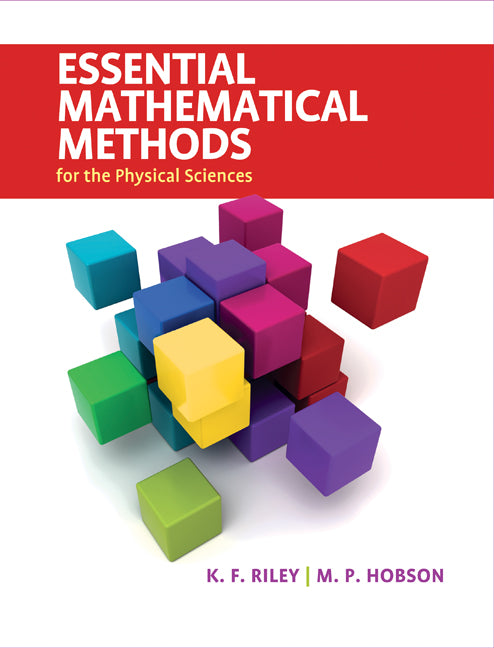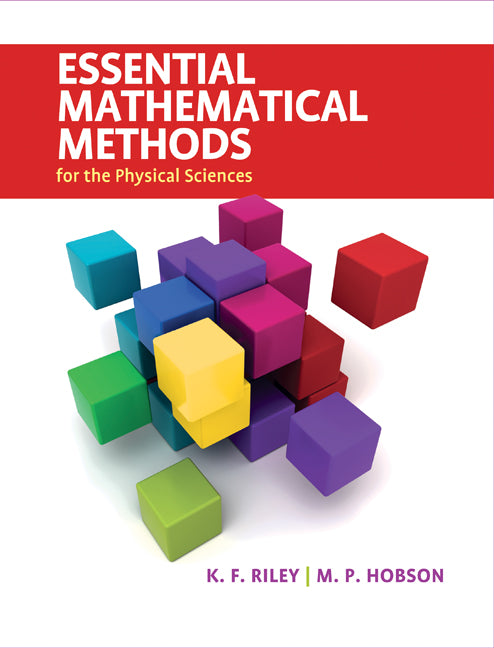Freshly Printed - allow 8 days lead
Couldn't load pickup availability
Essential Mathematical Methods for the Physical Sciences
The mathematical methods that physical scientists need for solving problems are clearly set out in this tutorial-style textbook.
K. F. Riley (Author), M. P. Hobson (Author)
9780521761147, Cambridge University Press
Hardback, published 17 February 2011
843 pages, 106 b/w illus. 510 exercises
25.3 x 19.8 x 3.9 cm, 1.95 kg
'Problem solving skills can only be developed by solving problems, and here students can gorge on many stimulating problems … this book can be recommended as [a] thorough, readable, mathematical methods textbook for undergraduates on a par with the book of Boas. As Paul Dirac said 'God used beautiful mathematics in creating the world', and students will not go far wrong by beginning their journey into mathematical physics here.' C. A. Downing, Contemporary Physics
The mathematical methods that physical scientists need for solving substantial problems in their fields of study are set out clearly and simply in this tutorial-style textbook. Students will develop problem-solving skills through hundreds of worked examples, self-test questions and homework problems. Each chapter concludes with a summary of the main procedures and results and all assumed prior knowledge is summarized in one of the appendices. Over 300 worked examples show how to use the techniques and around 100 self-test questions in the footnotes act as checkpoints to build student confidence. Nearly 400 end-of-chapter problems combine ideas from the chapter to reinforce the concepts. Hints and outline answers to the odd-numbered problems are given at the end of each chapter, with fully-worked solutions to these problems given in the accompanying Student Solutions Manual. Fully-worked solutions to all problems, password-protected for instructors, are available at www.cambridge.org/essential.
1. Matrices and vector spaces
2. Vector calculus
3. Line, surface and volume integrals
4. Fourier series
5. Integral transforms
6. Higher-order ODEs
7. Series solutions of ODEs
8. Eigenfunction methods
9. Special functions
10. Partial differential equations
11. Solution methods for PDEs
12. Calculus of variations
13. Integral equations
14. Complex variables
15. Applications of complex variables
16. Probability
17. Statistics
Appendices
Index.
Subject Areas: Computer programming / software development [UM], Mathematical physics [PHU], Mathematical foundations [PBC]


